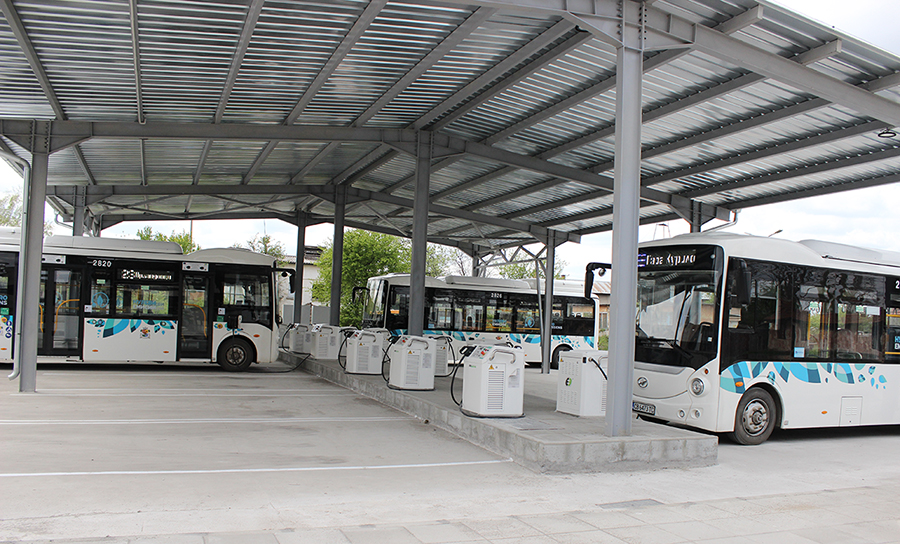At last week’s Energy for a Green Future conference, Sofia Mayor Ms Yordanka Fandakova reported on advances towards metropolitan city public transport electrification. The aim is to replace 100 percent of trolleybuses, 90 percent of buses and 50 percent of trams, and to purchase 120 additional zero-emission electric buses.
“These are huge advances that have genuinely changed the face of Sofia’s transport service and the city’s overall transport infrastructure. The share of electric public transport will be 45 percent at the close of the year, rising to 70 percent if we take the metro into account. This is in line with the ambitious aim we set ourselves some years ago and which we shall have achieved in a few more months,” added the Mayor.
“We had great concerns about the repayment timespan for the electric buses the Metropolitan Municipality bought. It is no secret that they are significantly dearer than conventional buses. I can now reveal that we finished paying for the first electric units within four years,” stated Ms Fandakova.
“Moreover, these electric buses, which now number over 100, cost about 20 percent less per passenger kilometre than internal combustion-engined buses (where those are still running, that is). During the 2021-‘22 energy squeeze, the Municipality was concerned about unduly great power price rises, yet after petrol and diesel prices also rose, electric buses still ended up 20 percent more economical than internal combustion-engined public transport vehicles,” recalled the Mayor.
The Metropolitan Municipality recently bought 52 smaller 22-seater electric buses with a range of some 1800 metres. Among them are 22 new 8.5-metre battery electric buses developed by the Chariot Motors company. They serve routes 23, 82, 100, and 101, acting as feeders to other metropolitan electric vehicles like metro trains and trams.
The mayor reported that, in practice, the past decade saw Sofia’s largest public transport fleet rollover, accompanied by a complete reorganisation. “It is no accident that we no longer view transport as the capital’s worst air polluter. Wood and coal-burning stoves have taken over from it,“ added Fandakova.





